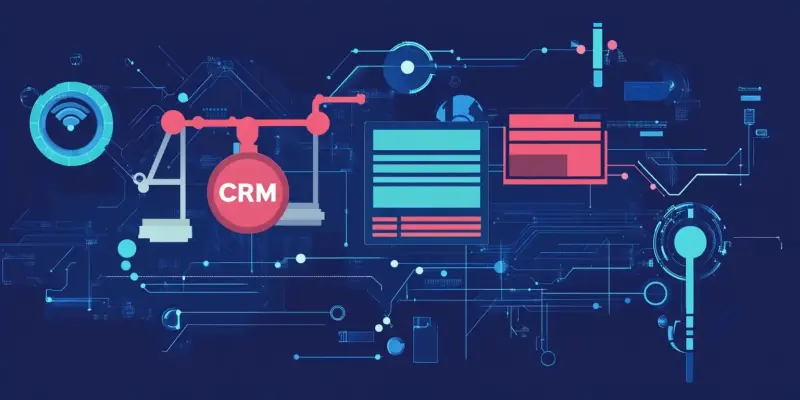Love is in the air this February, but at CLIENTSFirst Consulting, we have a different kind of passion: a love for data quality. While it may not be the most glamorous topic, high-quality data is the unsung hero of every successful CRM, ensuring law firms can make informed decisions, optimize business development, and enhance client relationships. Law firms are struggling with data quality, and it’s costing them. Let’s explore why data quality matters, what happens when it’s ignored, and how to build a CRM that firms (and their attorneys) can truly love.
Initiate with a Data Quality Evaluation
84.71% of law firms have a CRM in place, yet their average satisfaction score is just 5 out of 10. Even more concerning, firms rated their data quality at an abysmal 6 out of 10. If a CRM is only as good as the data inside it, then poor data quality could be the real culprit behind CRM dissatisfaction. This is a widespread challenge—not just for law firms but across industries. Respected research organizations found that 30% of contact data degrades every year, and that rate is likely even higher in the wake of rapid workforce changes. Without proactive data maintenance, CRM systems become bloated with outdated, incomplete, and duplicate records, making them more of a liability than an asset.
Poor data quality doesn’t just create frustration—it has tangible business consequences. The damage is often hidden, accumulating over time like dust in a neglected attic. At first, it’s just a few outdated contacts, a couple of bounced emails. But as time goes on, the effects snowball, creating inefficiencies, lost opportunities, and wasted resources. Imagine launching an expensive client event, only to find that half of your email invitations bounce or go to outdated addresses. Your firm has spent weeks planning, securing speakers, and finalizing logistics, but the right people never even receive the invite. Worse, if your marketing database is riddled with duplicates and old contacts, your communications may not be reaching the key decision-makers—leading to missed engagement and low ROI.
Utilize Data Supervisors for Ongoing Quality
Lawyers rely on data to build and maintain client relationships, but when the CRM becomes a source of frustration instead of insight, they stop using it. Only 29% of attorneys use the CRM consistently, a clear sign that trust in the system is lacking. Why? Because when they search for a client, they often find duplicate records, outdated information, or missing contact details. If they can’t trust the system, they won’t use it—and if they won’t use it, the CRM fails to fulfill its purpose. Consider this: A partner at your firm is preparing for a high-stakes pitch to a potential client. They need to see past interactions, notes from previous meetings, and recent engagements. But when they open the CRM, the data is incomplete, inaccurate, or missing entirely. The meeting goes forward, but without the right context, the conversation lacks the personal touch needed to seal the deal.
In contrast, firms with high-quality data can analyze their contacts, track engagement history, and proactively spot new business opportunities. Clean data isn’t just about hygiene—it’s a revenue-driving strategy. The financial burden of reactively fixing bad data is enormous. Studies show that fixing bad data costs 10 times more than preventing it in the first place. Yet many firms still treat data quality as an afterthought, only realizing the scale of the problem when marketing ROI declines, clients stop responding, or attorneys complain that the CRM is unusable. The reality is that poor data quality is a silent revenue leak—and the firms that get ahead of it will be the ones that thrive.
Standardize Data Input and Management
The first step to fixing data issues is understanding their full scope. Would you buy a house without an inspection? Of course not. The same logic applies to your CRM. We recommend a Data Quality Assessment to analyze your records, identify gaps, and prioritize what needs cleaning. It’s not about tackling every issue at once—it’s about fixing the most critical problems first. A one-time cleanup is not enough—data degrades constantly. Without ongoing maintenance, bad data creeps back in. A dedicated Data Stewarding team ensures that every record added is verified, updated, and correctly formatted. The firms that invest in long-term data quality management see the biggest improvements in CRM effectiveness.
One of the biggest drivers of bad data is inconsistency in how records are entered. If one person logs a contact as “J.P. Morgan Chase” and another as “JP Morgan,” searches won’t return complete results. Establishing clear data entry rules and enforcing consistent formatting can eliminate errors before they happen. Attorneys need to see what’s in it for them—how clean data makes their work easier. Training, dashboards, and easy-to-use interfaces are crucial. Firms that provide role-specific CRM training—showing attorneys how the data helps them win business and strengthen relationships—see higher adoption and greater CRM success.
Align Data Plan with Attorney Engagement
Love is in the air this February, but at CLIENTSFirst Consulting, we harbor a different kind of passion: a love for data quality. While it might not be the most thrilling topic, high-quality data is the behind-the-scenes champion of every successful CRM. It empowers law firms to make informed decisions, optimize business development, and strengthen client relationships. Poor data compromises decision-making, hampers business growth, and weakens client connections. So, let’s delve into why data quality is vital, the consequences of neglecting it, and how to create a CRM that firms—and their attorneys—can genuinely appreciate. By prioritizing data quality, legal professionals can drive smarter strategies, boost efficiency, and cultivate stronger client trusts. This February, let’s not just celebrate love, but also the importance of clean, reliable data in transforming law firm success.

